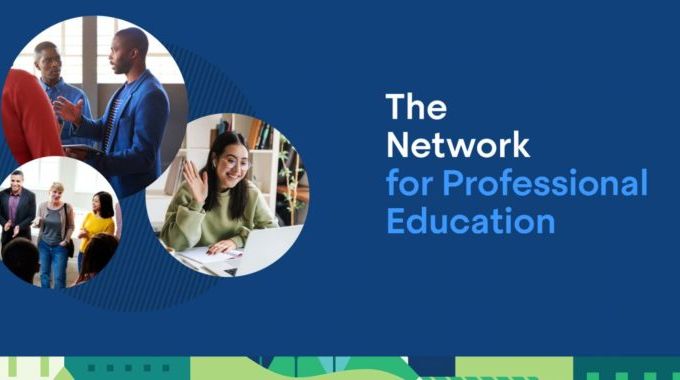INSIDE LOOK at CARE
Boston University leadership, faculty, and staff from across all three campuses are experimenting, learning, and developing new and innovative ways to enhance the teaching and learning experience at BU. With assistance from Digital Learning & Innovation’s Incubator, nearly six dozen innovative projects have been funded and supported since its inception in 2014. INSIDE LOOK is authored by those leading the exploration and innovation charge and offers a behind the scenes look at a variety of projects in various developmental stages.

About the Incubator Project: CARE (Chemistry Active-learning Resources for Educators)
Prepare with CARE (Chemistry Active-learning Resources for Educators) is an Incubator pilot project designed to support students’ learning and outcomes as they progress to upper-level chemistry courses. The CARE project, which launched fall 2019, provides the necessary assessment tools and mentoring to guide students. The project goal is to develop a suite of materials that will enable faculty and students to select and utilize carefully curated and targeted materials for getting ready for upper-division courses.
About the Author: Binyomin Abrams
Binyomin Abrams is the Director of General Chemistry and Master Lecturer in the Chemistry Department at Boston University. In 2010, Professor Abrams won BU College of Arts & Sciences Templeton Prize for Excellence in Student Advising; is the recipient of the 2015 Metcalf Award for Excellence in Teaching; and more recently, named the recipient of the 2021 Gitner Family Award.
###

Answering some of the more pressing questions facing society in the 21st century requires deep understanding of the molecular sciences. For many novices, however, mastering chemical principles can be quite challenging, and early stumbles can deter even the most motivated and dedicated students. Our goal is simple: to support all students as they progress through the foundation chemistry courses at Boston University and beyond.
Developing and leveraging educational technology
Novel educational technologies and pedagogies are central to our approach towards supporting students in their path towards mastering chemistry. They are the foundation of the CARE pilot project.
For the past two years, and with funding and project management support from Digital Learning & Innovation’s Incubator, we have developed and assessed the use of question-embedded videos (QEVs) – video learning modules that combine review instruction, self-paced formative assessment embedded in the videos, and reducing cognitive load through scaffolding and use of multimedia. Unlike traditional textbook readings or passive (traditional videos), our research has shown that QEVs are significantly more effective for helping students review tough concepts and can even eliminate poor outcomes (https://doi.org/10.1021/acs.jchemed.1c00237).
Course-level transformation for bridging the gap to Organic Chemistry
One of the toughest transitions for students in chemistry is between general chemistry (typically taken in the first year of college) and organic chemistry (the following year). With our success in designing and building QEV-based learning modules, we set our sights on how we could support our students in overcoming this challenge. We first ran the OrgoPrep program in the summer of 2020 – given the tumultuous circumstances that plagued the prior spring and continued to challenge students the following year, we knew that we had to do something big. The OrgoPrep program was a 6-week, hybrid summer program designed to help students review the requisite concepts from prior chemistry, bolster their confidence in their molecular science skills, and prepare them for organic chemistry. Each weekly lesson was comprised of three components: (1) asynchronous review with QEVs (Step Back), (2) a guided self-paced worksheet to hone skills (Translate), and (3) a peer-led remote webinar for students to work problems, discuss concepts, and begin applying their knowledge to organic chemistry material (Extend). With the generous support of the Educational Resource Center, we were able to offer OrgoPrep for free to all 200 students that expressed interest. The results were better than we could have hoped! Despite having identical preparation as their peers, and no statistical difference in their general chemistry performance, OrgoPrep students were 4-times less likely to drop, 3-times less likely to have a failing grade, and 2-times more likely to get an “A” in organic chemistry. In the summer of 2021, more than 400 students participated in OrgoPrep. With a 97% approval rating from students, OrgoPrep was a tremendous success (https://doi.org/10.1021/acs.jchemed.1c00846)!
Looking to the Future
We are currently working on building a QEV library for all of general chemistry, bridge programs for entering first-year students, resources to support students entering biochemistry, and modules for high school educators. While there is still much work to be done, we are encouraged to have a meaningful path forward that has been shown to be effective and that students appreciate. The future of teaching chemistry is bright, and we are very grateful for the support from BU Digital Learning & Innovation and the Digital Education Incubator – we couldn’t have done this without them!


